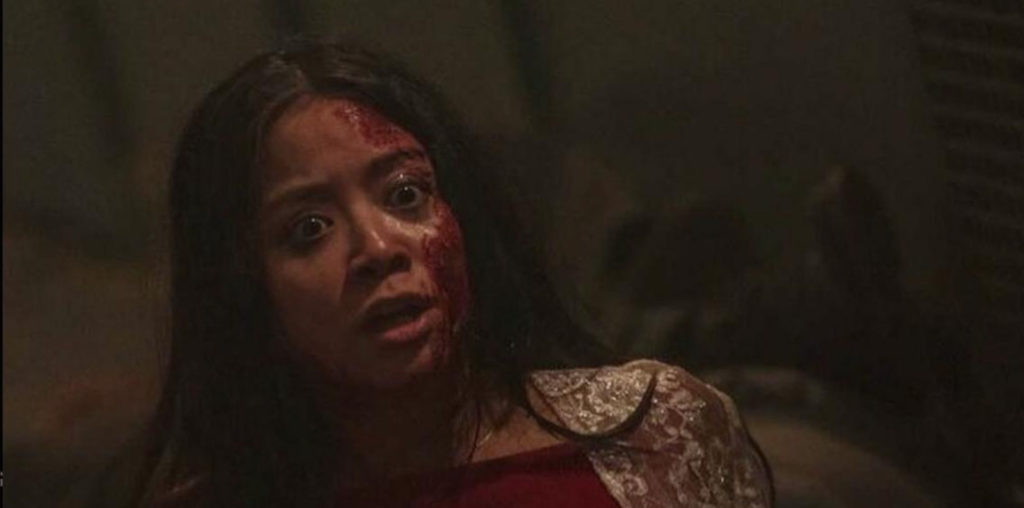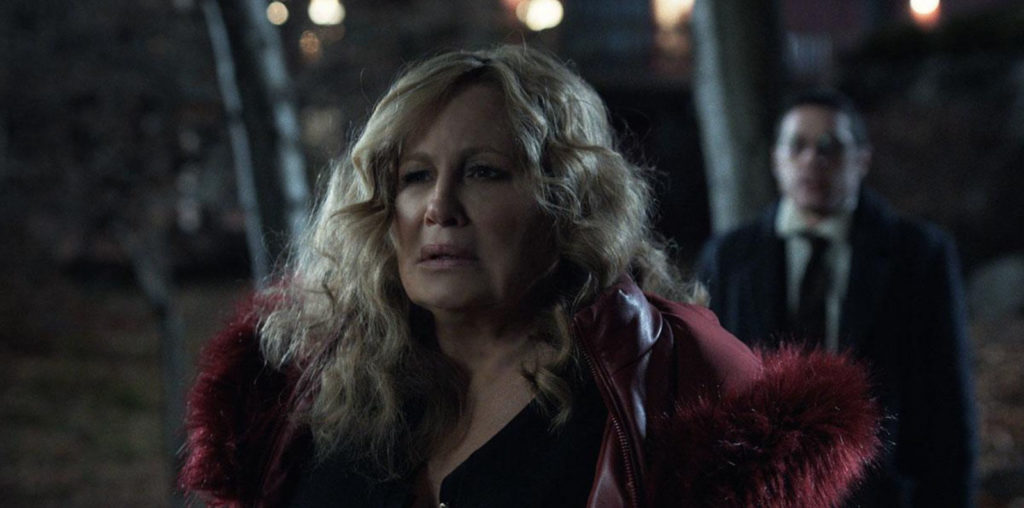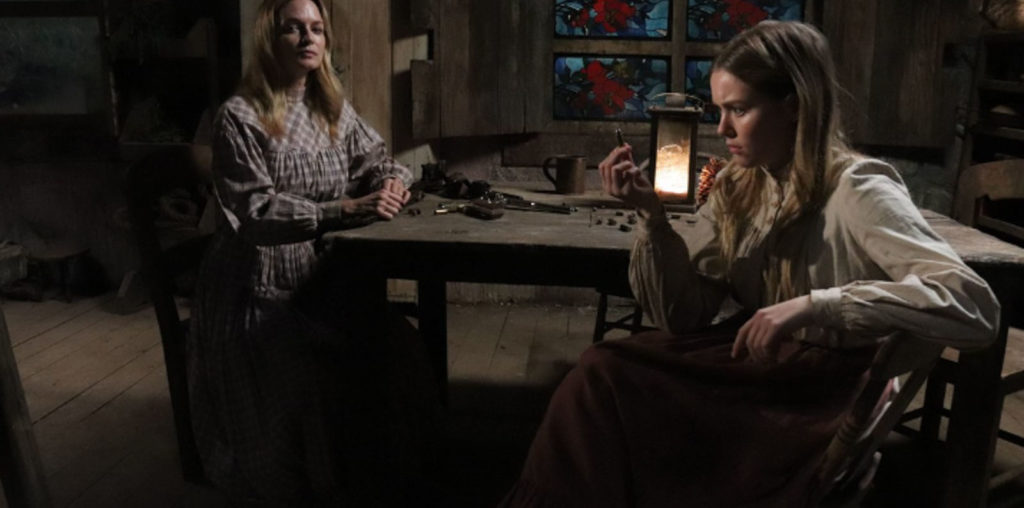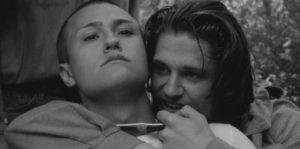
For more proof that the great Texas indie tradition rides on, take a good squint at the stark black-and-white crime drama Blind Escape, written and directed by Chris Kinzie. The film follows Fred Herman (Evan Jackson Moore), a despondent laundry detergent salesman stuck in a quicksand lifestyle, sinking into nowhere. One morning, he receives repeated calls from the wrong number. The caller, Aunt Sug (Candy Afflerbach), thinks Fred is her long-lost nephew Charlie. He keeps hanging up until she mentions Charlie’s $30,000 inheritance.
Fred heads out to the dot on the map where Aunt Sug lives, pretending to be Charlie. He catches the eye of neighbor Maggie (Jazmin Diebler), which her man, Joe (Preston Ware), doesn’t take very kindly. Joe and his buddies bend their elbows all the time at Aunt Sug’s bar and are eager to get to know dear nephew Charlie a little better off the ends of their knuckles. Fred is playing with fire by lying to everybody, but like a moth, he’s drawn to the twin flames of the money and Maggie.
I have been writing for years about how my former state of residence, Texas, has retained its unique ecosystem that feeds its maverick independent film output. Blind Escape is a film exemplifying this, radiating that specific Lone Star indie venom. The stunning monochrome cinematography by Kinzie and Thomas Blanks has black and white visuals on the same level as The Last Picture Show. An arsenal of angles enhances the rich bleakness of the compositions and silhouettes straight out of art photography. There is a motif of repeatedly revisiting the white picket fences along the houses, which comes off as very Lynchian. Other such elements are finding a black doorway and plunging into it, as well as the surreal finale that you won’t see coming.
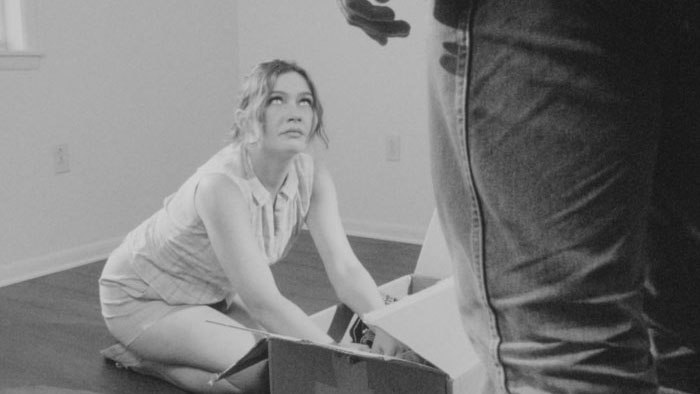
“Fred heads out to the dot on the map where Aunt Sug lives, pretending to be Charlie.”
As if that weren’t enough, the story structure comes together like a backroads variation on Blue Velvet. If that sounds awesome, it kinda is. We also have some great acting from the leads. Diebler is fantastic. The camera really goes nuts when she is around. Moore has this striking look that is androgynous and childlike, which delightfully increases the intensity of his doomed character. He is so easy to underestimate until it is too late. Dieber and Moore have some shots together that rival some of the great Hollywood stills of star couples onscreen.
Unfortunately, sound-wise, Blind Escape is a split decision. It gets the highest marks possible for visuals and performances and has the clean velocity of the Jim Thompson-like screenplay. The blind spots come up in some of the worst sound mixing I have run into as a reviewer. I hope Kinzie kept the receipt because there are vast sections of dialogue that you cannot hear. You can hear the ever-present locusts at the front of the mix just fine, but line after line is buried in a muffle pit somewhere in the back. In the indie world, we cut all sorts of technical slack, as critics and fans know the cast and crew aren’t working with the big bucks. But while you can look at something poorly lit or poorly produced, no one can hear lousy sound. The first few times you have to rewind to crank the volume up and still not be able to make it out will have many giving up. It has the mark of a mix that sounds great on headphones but was not tested completely on an actual 5.1 speaker system.
The sound only scores a 3, which is a pity because the rewards far outstrip the glaring sonic pitfalls. The visuals, the acting, and everything else get a 10, so we’ll call this a very strong 7.5 because it looks great but doesn’t sound so hot. But sound aside, Blind Escape is a beautiful and bleak indie wonder.
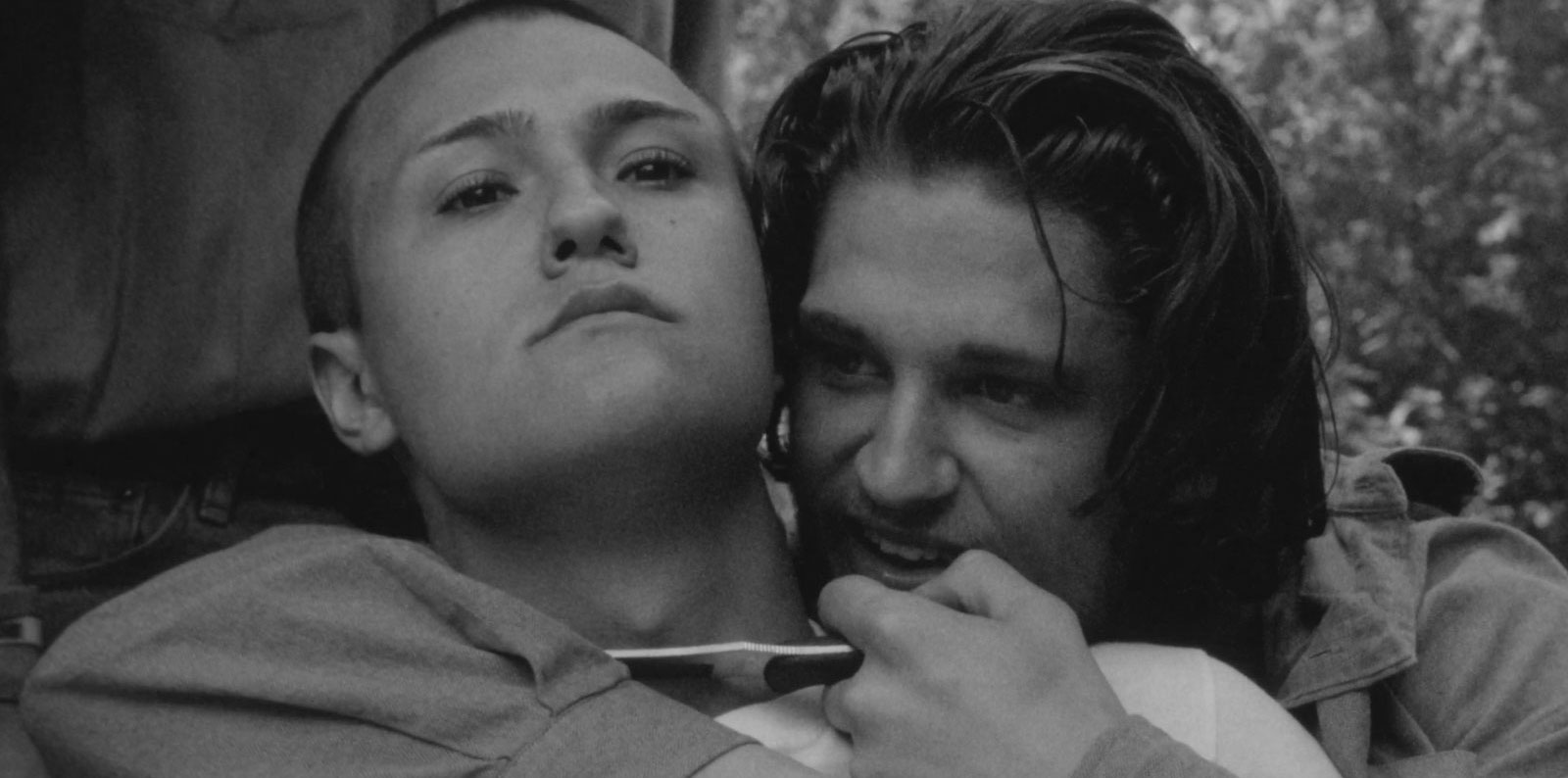
"…has black and white visuals on the same level as The Last Picture Show."
